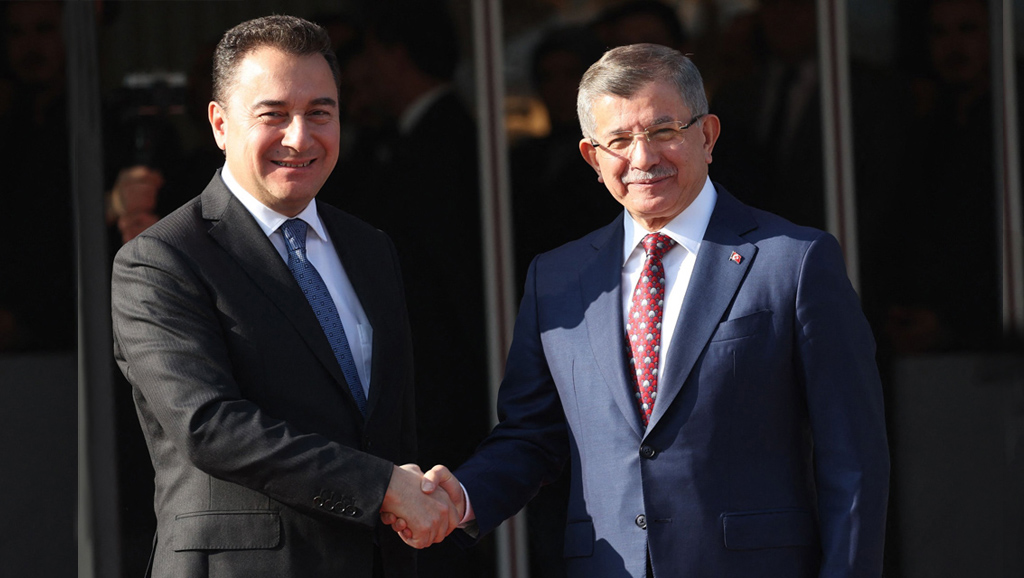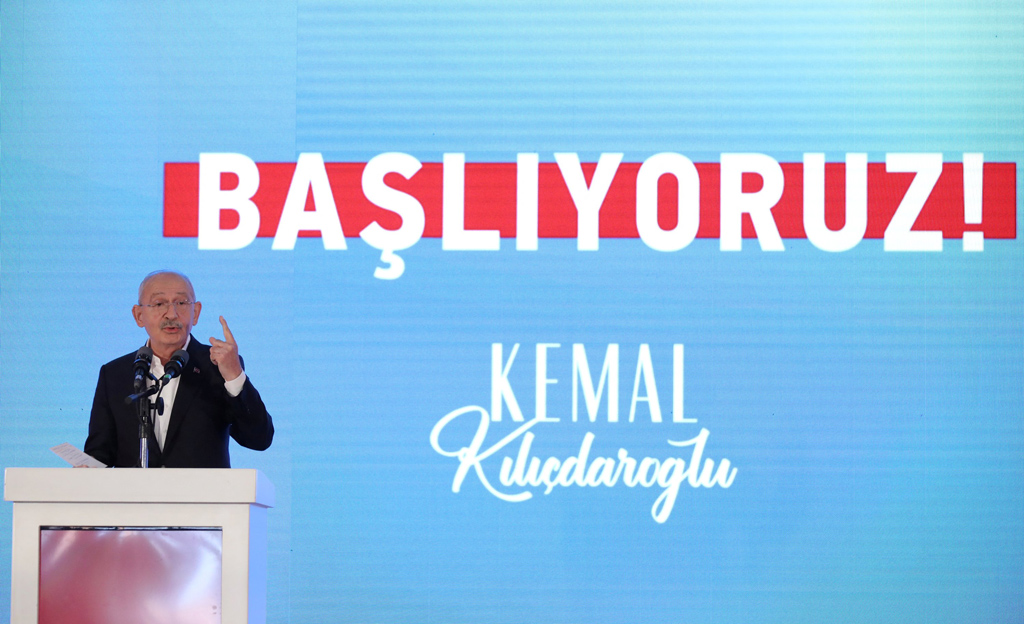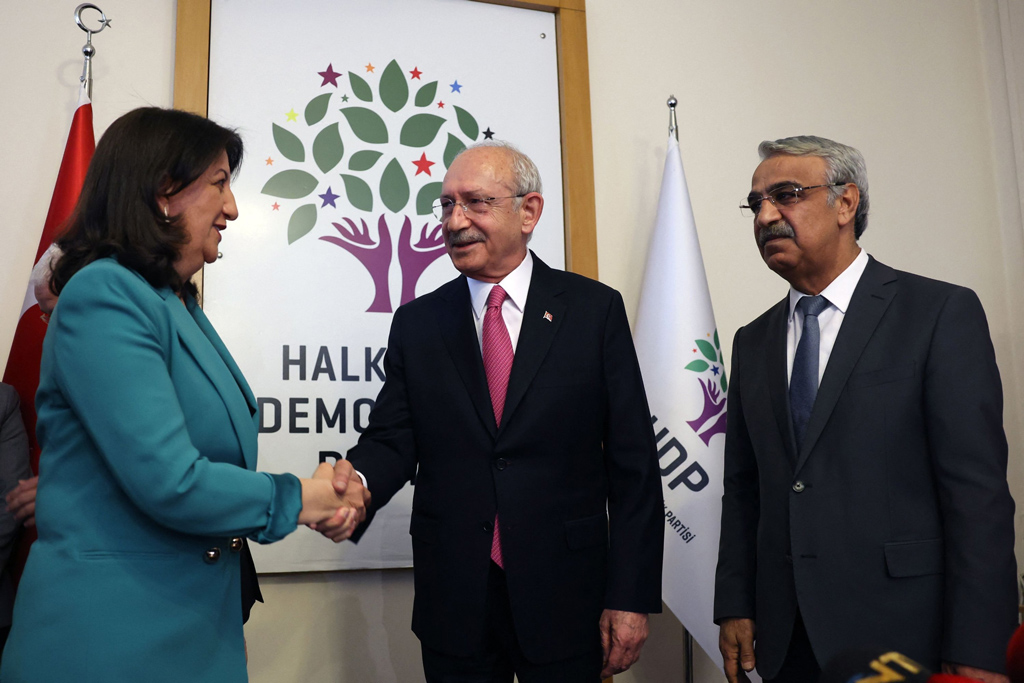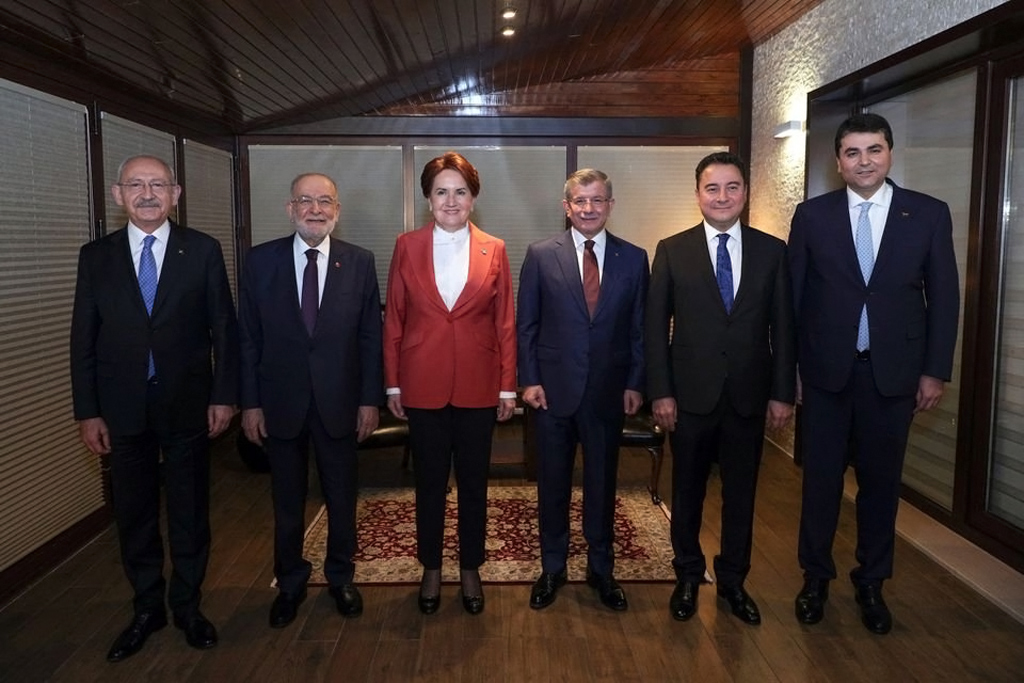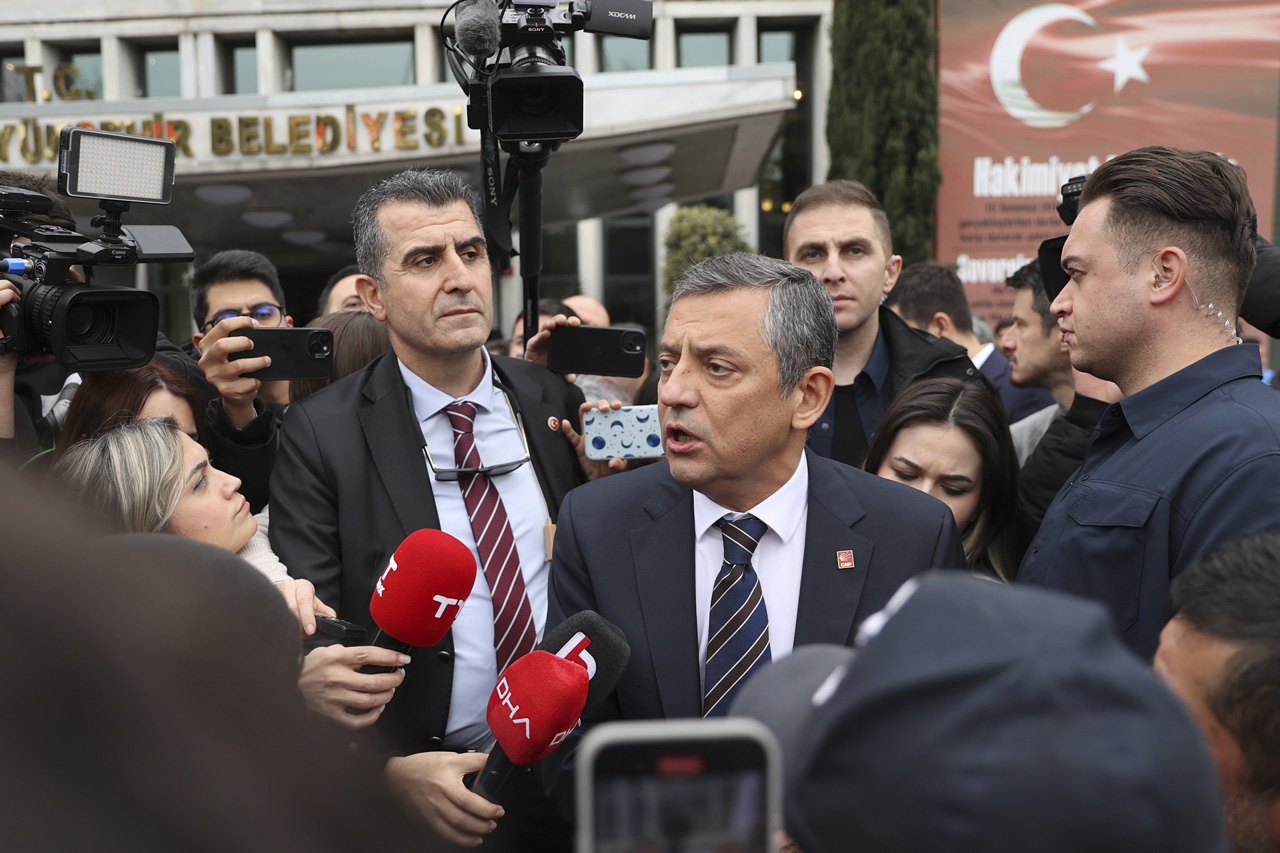The Turkish opposition bloc, which is known as the "table for six," cannot seem to communicate with the electorate.
The party leaders, who are part of the bloc, delved into explaining what the government will look like in case of their victory. They came under fire from the opposition ranks for that.
As I previously noted, the top issue for the opposition will be the presidential model for the transition period as opposed to the "augmented" parliamentary system. That debate will continue until the election. According to main opposition
Republican People's Party (CHP) Chair Kemal Kılıçdaroğlu, the opposition bloc has agreed on the following: “The leaders of the six parties
are equal and will serve as vice presidents. At the same time, we will allocate ministerial seats in the spirit of representative democracy – according to each party’s share of the vote.”
The CHP chair refers to a “dual mechanism” but what he described was no different than what
Future Party (GP) Chairperson Ahmet Davutoğlu and Democracy and Progress Party (DEVA) Chairperson Ali Babacan had already unveiled. In other words, the six parties' leaders will have “president-like” powers and “extraordinary strategic importance” even if they receive just 1% of the vote. In a nutshell, each party leader
will be on par with the president.
It is virtually impossible for the parties' leaders to come up with any alternative to this “authority to sign” – which, critics say, represents a “guardianship model that violates the Constitution.” The “consultation” model, in turn, is the least effective method in terms of the nature of politics.
One cannot reasonably expect the six party leaders who Davutoğlu claims to have “sacrificed their natural candidates to gather around the table” to be so clueless about the nature of politics.
Unsurprising moves from Davutoğlu, Babacan
It is unsurprising that Davutoğlu and Babacan lead the effort to grant veto powers to the chairs of ideologically different parties and draw parallels between that approach and the relationship between “prime ministers and ministers” to claim that “all decisions will be unanimous – just like NATO.”
After all, they could not possibly explain to conservative voters that they actually agreed to be “inconsequential figures” around the CHP’s table – which is incompatible with their ambitions. Hence the two fringe parties emerged as the opposition bloc’s most passionate supporters.
Indeed, Davutoğlu and Babacan proved willing to disregard the pro-CHP media’s references to their history with the ruling Justice and Development Party (AK Party). Meanwhile, those media outlets, which support them, incessantly highlight the “importance” of keeping the opposition bloc intact. If Kılıçdaroğlu set the "table for six," then Davutoğlu and Babacan have engineered a common process management and policy set.
That is why Kılıçdaroğlu doesn’t care about the pro-CHP media insulting Davutoğlu and Babacan by sarcastically asking them how many votes they bring to the table or accusing them of “undermining the people’s hopes for the sake of polishing their egos.” He probably cannot understand why some CHP voters would be unhappy with Davutoğlu’s most recent statements either.
After all, Kılıçdaroğlu knows that the CHP will claim the lion’s share of political power if he or another CHP member is elected president. He is also aware of the possibility of proudly leading his party to power after a very long time – even if it takes a coalition Alla Turca. In the end, he could control Parliament by working with
the Peoples’ Democratic Party (HDP) even if some parties were to leave the opposition bloc.
Possibility of chaos, crisis
In the meantime, Davutoğlu’s recent comments about the possibility of a new election being held as a result of the elected president failing to comply with the opposition bloc’s agreement and “losing the Parliament’s support” did not only highlight the likelihood of chaos and crisis.
At the same time, Davutoğlu revealed a deep-seated concern that he has been trying to suppress: What if the CHP-affiliated president were to abandon the fringe parties by arguing that the "table for six" had reached a deadlock?
In other words, he is worried that the popularly elected president will appoint the six party leaders as vice presidents only to remove them from office for causing him/her problems. That is when the leaders of fringe parties will realize that any 1% party can be easily replaced in Parliament. In that case, it will also become clear how naive they were to reassure conservative voters that their rights would be safeguarded.
The "engineers" of the "table for six," who face harsh criticism, work very hard to ensure the success of a political initiative that would lead to the CHP’s domination. They attempt to sugarcoat the removal of conservative Muslims from power by singing the praises of the "table for six." Kılıçdaroğlu, who plays the good cop, understands all that.
Meanwhile, the pro-CHP media play the bad cop to mount pressure on the "engineers."
[Daily Sabah, January 14 2023]
